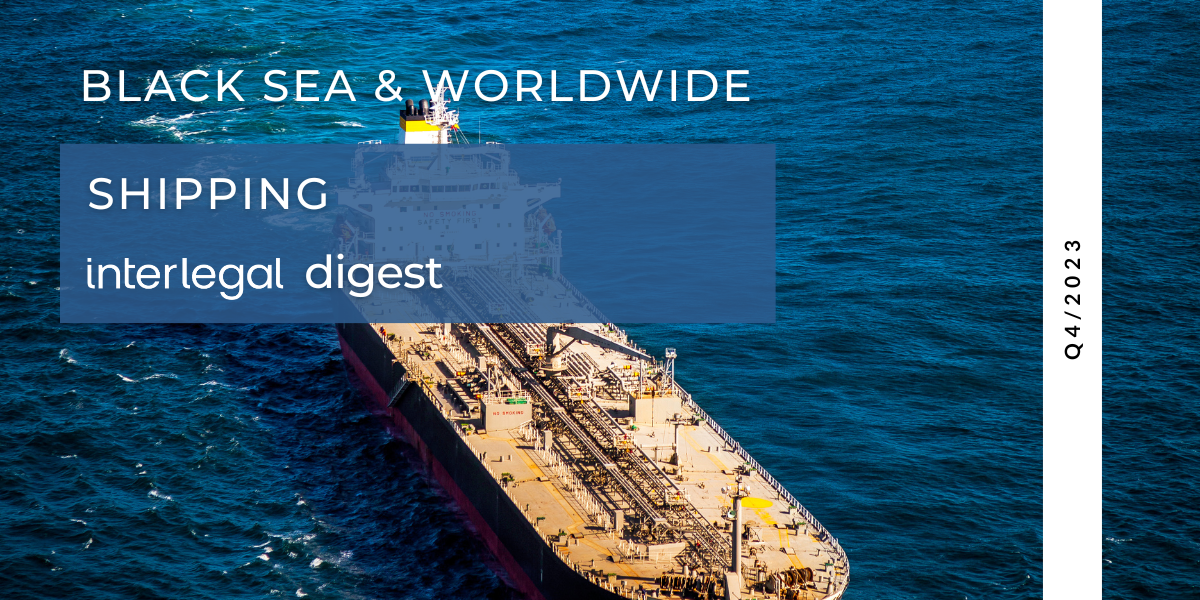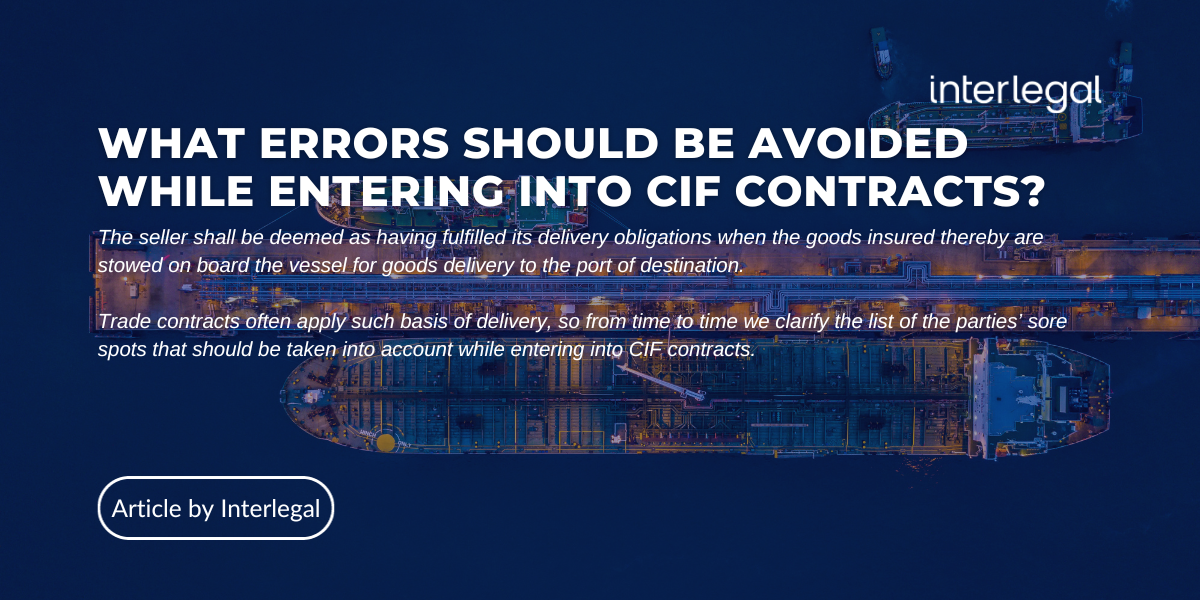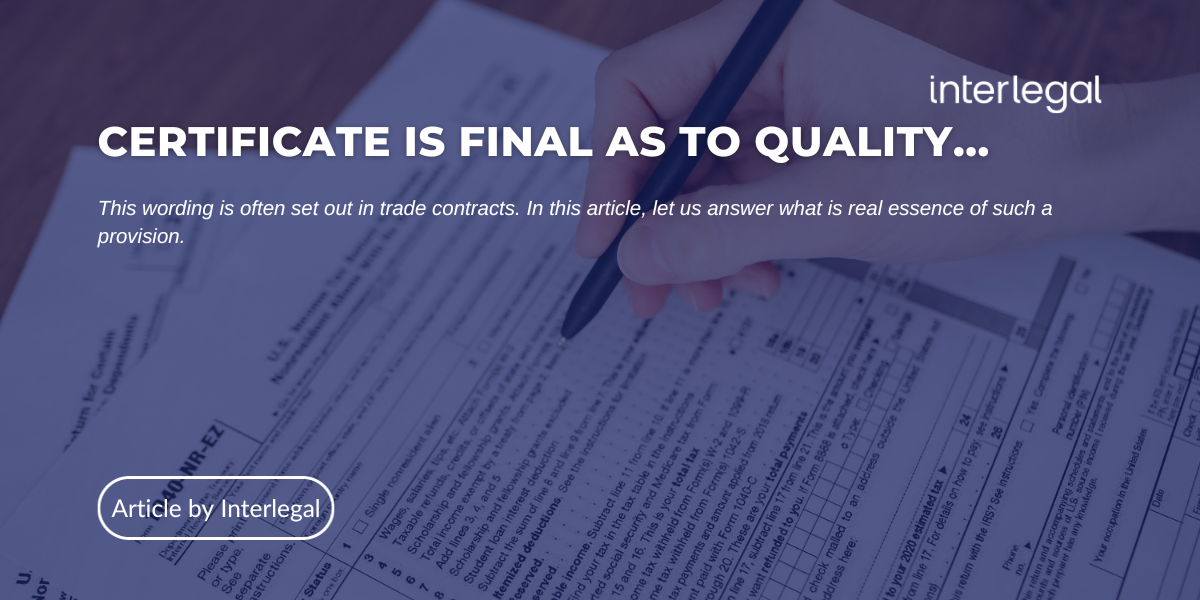Peculiarities of Ship arrest in some Black Sea jurisdictions
16 March, 2017
3
Black Sea countries – Ukraine, Russia, Georgia, Turkey, Bulgaria, Romania and Moldova – have various rules governing ship arrest. Some of these countries (namely, post-Soviet ones) are similar by mentality and official approach, while others are very different in administration of law and court practice.
Efforts to create a uniform set of rules have not fully succeeded yet, making it sometimes difficult to provide legal support and to release ships from arrest. However it does not mean that the efforts of the maritime community towards the unification of arrest procedures have no results. Russia, Romania and Ukraine are signatories to the Brussels 1952 Convention. Bulgaria is a party to Geneva 1999 Convention. Some countries implement provisions of the Conventions into their national legislation.
In the meantime, each Black Sea country has certain peculiarities as for the arrest of ships some of which we discuss below.
Ukraine
Legal relationships as for ship arrest is governed by the Commercial Procedural Code of Ukraine, the Merchant Shipping Code of Ukraine and the 1952 International Convention for the unification of certain rules relating to the arrest of sea-going ships dd. 15.10.1952, in force in Ukraine since 16.05.2012.
When considering such cases, commercial courts, besides the aforesaid legislative acts of Ukraine, shall also take into account provisions of Recommendation and Explanations of the Supreme Commercial Court of Ukraine, in particular, the following:
– Order of the Plenum of the Supreme Commercial Court of Ukraine “On some issues of claim security measures” No. 16 dd. 26.12.2011;
– Order of the Plenum of the Supreme Commercial Court of Ukraine “On some issues of settlement of disputes regarding protection of intellectual property rights” No. 12 dd. 17.10.2012.
Court practice analysis shows that commercial courts have more or less similar approach to consideration of ship arrest petitions. But some cases, showing ambiguity of laws and difficulties the courts within the case consideration, shall be explained in details.
It is obvious that for the effective consideration of the ship arrest petitions, the courts should interpret and understand the law provisions in a similar way.
Thus, of high importance their understanding of the main goal of the Convention and/or the Merchant Shipping Code regarding ship arrest on the grounds of maritime claim that is to secure the creditor’s lawful claims against shipowner or charterer as responsible person under maritime claim, by means of procedures stipulated by the national legislation of the state in which ship arrest is performed..
In the meantime, in practice, Ukrainian commercial courts still not fully perceive the nuances of the ship arrest issues, e.x. concerning definition of the term “ship arrest”.
Thus, the Odessa Region Commercial Court, having considered the application on taking security measures in the form of ship arrest by means of its prohibition to leave the port (case No. 916/2026/15), concluded that the claim was deemed as a claim on prohibition to perform certain actions, but not as ship arrest.
The Odessa Region Commercial Court made a similar conclusion in respect of similar issue (case No. 916/660/15).
Therefore, there is still time needed to build the uniform court practice in Ukraine in respect of ship arrest cases.
Romania
Romania is the party to 1952 International Convention Relating to the Arrest of Sea-Going Ships.
Legislation of Romania allows demise chartered ship arrest. A recent case was presented before the Constanta Maritime Court of Appeal. It clarified the conditions under which provisions of Article 3(4) of the 1952 International Convention Relating to the Arrest of Sea-Going Ships may apply.
According to the abovementioned regulation:
“When in the case of a charter by demise of a ship the charterer and not the registered owner is liable in respect of a maritime claim relating to that ship, the claimant may arrest such ship or any other ship in the ownership of the charterer by demise, subject to the provisions of this Convention, but no other ship in the ownership of the registered owner shall be liable to arrest in respect of such maritime claim. The provisions of this paragraph shall apply to any case in which a person other than the registered owner of a ship is liable in respect of a maritime claim relating to that ship.”
Assuming that the application for arrest refers to the demise chartered vessel and the demise charterer is fully responsible for the maritime claim relating to that ship, the legal matter which may arise whether demise charter is in force or not at the time when the application seeking the arrest of vessel is filed to the competent Court.
The first instance competent court in the subject matter decided that it is not relevant whether the contract is still in force or not. According to its considerations, the maritime claim follows the vessel, irrespective of whether demise charter is still in force or has terminated, or whether the vessel is under a contract with other demise charterer.
The Court of Appeal as the second and final instance court for maritime matters has a totally different approach in respect of the meaning of Article 3(4) of the Convention.
As the Court underlined in its considerations, according to the Article 1(2) of the Convention:
(2) “Arrest” means the detention of a ship by judicial proceedings to secure a maritime claim, but does not include the seizure of a ship in execution or satisfaction of a judgment.
Consequently, ship arrest represents means of coercing a debtor to pay its debts, but not enforcement proceedings of a writ of execution. There must be a necessary correlation between the debtor and the arrested vessel which shall secure the legal effects of an arrest.
This Court considers that, for all maritime claims registered on the vessel in the process of performing the demise charter, the debtor under all claims is the charterer and not the vessel and/or the owners.
In the above circumstances, an arrest exercised on a vessel operated under demise charter and owned by different company shall have effects provided that, at the time of filing the application for arrest, the debtor has to be identical to the demise charterer.
If this condition is not fulfilled, the arrest cannot be accepted, since a different entity than the demise charterer may be obliged to incur the consequences of unpaid debts. The Court considers that these are the scope and spirit of the 1952 Brussels Arrest Convention.
Turkey
According to the Article 1355 of the Turkish Commercial Code, in Turkey an order for the arrest of vessels flying under foreign flags may only be awarded by the court at the place where the vessel has been anchored, moored to a buoy or piling, brought alongside or laid on the stocks.
For representation of the interests, the following documents are necessary (one-time):
1. Duly prepared, notarized and apostilled original of the general POA (scanned beforehand). The draft will be provided.
2. Original General Agreement on legal assistance (scanned beforehand). The draft will be provided.
3. Apostilled copies of the company documents on incorporation/registration (Certificate of incorporation, Extract from the Register about status and validity of the company/directors, Articles of association), scanned beforehand (if necessary).
In order to obtain the order on ship arrest it is usually required the package of documents, i.e. contract of carriage, relevant invoices etc. evidencing the losses. The supporting documents are filed with the application on ship arrest as preliminary measure to the local commercial court under the local commercial procedural code.
The court accepts the subject evidence for consideration on deciding whether there is loss and necessity for immediate protection of the claim. The Turkish Law provides filing the claim on merits to the competent court having obtained the order on ship arrest. It is on sole discretion of the judge whether to accept such application regarding the order on ship arrest.
The demands may be based on two different aspects determined by Article 132 as maritime liens and Article 1352 as maritime claims. Maritime liens are effective to any individual who owns the vessel. However, maritime claims may only be addressed to the owner if only it is also treated as the debtor under the relevant claim. As a result of the court consideration of the application on ship arrest the court issues relevant court order which is to be enforced against the ship. The claim on the merits must be filed to the competent court or arbitration within 30 days following the order on ship arrest.
The Turkish Commercial Code provides that counter-security in amount equal to 10.000 SDR must be remitted to the court account jointly with filing the application however this amount may be increased/decreased at the judge’s discretion.
Georgia
If ship arrest practice in Ukraine, Russia, Turkey, Bulgaria and Romania is researched quite well and is emerging in Moldova, ship arrest and detention practice in Georgia is not well-known but is rich enough.
Some procedures of taking security measures under the Commercial Procedural Code of Georgia contradict to the general provisions on ship arrest. Under the prescribed practice stipulated by 1952 and 1999 Conventions, ship arrest is neither type of charge nor type of liability. It is just the maritime claim security measure and does not include measures to be taken for enforcement of the court decision or arbitration award which entered into legal force. In opposition, civil procedural doctrine of Georgia provides that security measures shall be taken for the purpose of enforcement of the court decision or arbitration award which entered into legal force, in respect of property secured by such measures.
Such regulation is stated almost in all court orders on security measures. In particular, for example, according to explanations of the Kutaisi Court of Appeal upon the case No.2/Б – 907 (Ruling dd. 22.10.2010), claim security measure shall guarantee actual enforcement of court decision and eliminate obstacles at the enforcement stage. It shall also guarantee proprietary interest of the party and full restoration of violated rights. There is no sense to recognize violated rights at any level if their restoration is not secured under the court decision guaranteed by claim security.
In respect of substantive grounds for ship arrest, there is a vital issue of determining the essence of maritime claim. As stated before, Georgia is not a party to the respective international conventions, therefore substantive grounds for claims on ship arrest shall be:
a) Article 43 of the Maritime Code of Georgia,
b) Maritime Code in respect of private relationship,
c) General principles of the law of obligations stipulated by the Civil Code of Georgia under which the merchant shipping claims may be justified.
In conclusion, such Black Sea countries as Ukraine, Georgia, Turkey and Romania have taken various approaches in ship arrest, therefore sometimes ship arrest in particular jurisdiction is not simple even for experts. Relationship between the parties involved in the ship arrest procedure is usually quite difficult. The arrest may cause situation which is difficult to settle by legal means, and the arrested vessels may stay idle for months. Therefore we usually advise the parties to search for compromise timely, trying not to escalate the situation and to avoid the arrest.
Published on Maritime risk international

























































